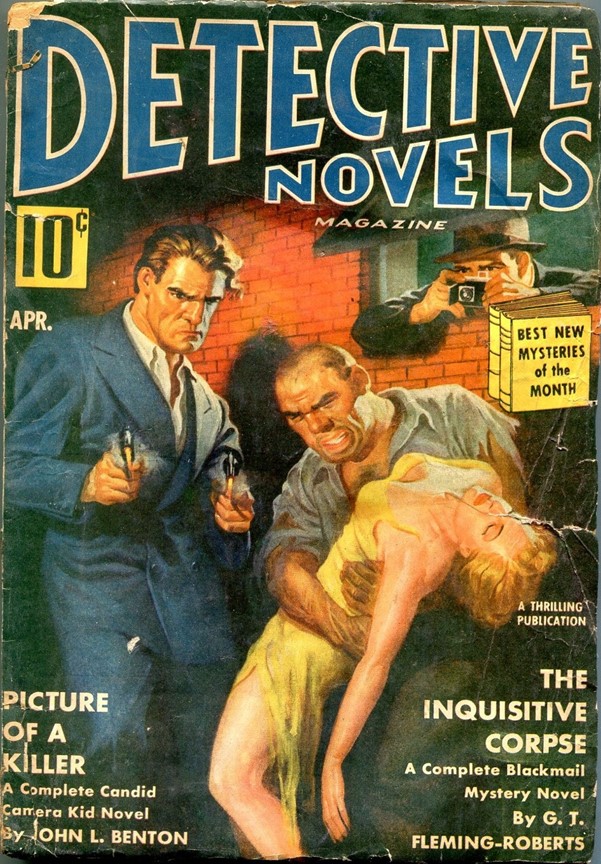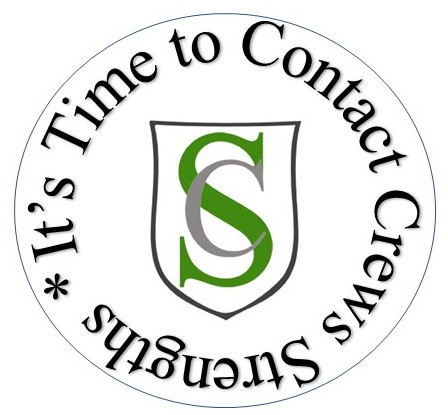Blog
“It’s Time to Put Your Resume to Work”: Part 6. Avoiding the Mundane, Boring, and Useless

A Revelation
Your resume is not about you.
What?
No, it isn’t.
Then what is it about?
Your resume is about how prepared you are to solve a potential employer’s problems and make her life easier.
Organizations hire people to solve their problems or satisfy their needs. That problem or need may be to sell more widgets, balance the accounts, cook five course meals, facilitate corporate training or captain the corporate submarine. Your resume is the first step in making the hiring manager aware that you can do the thing he needs done.
Your resume, and ultimately you, become interesting to an employer, by helping him imagine you in the job. Earlier posts of the “It’s Time to Put Your Resume to Work” series, have discussed ways to help do just that. These earlier posts can be found on the blog section of the Crews Strengths’ website.
In earlier articles, you learned ways to gather information from job listings to improve getting your resume noticed. This article is about sparking the imagination of the hiring manager and keeping your resume from looking like a help wanted ad.
The Mundane, Boring and Useless
Mundane, boring, and useless sounds like a product liability law firm. It isn’t, but filling your resume with them, can be a liability to getting an interview.

If you went through a random collection of resumes, you would find out that people feel duty bound to expound on what the company they currently work for does. They do it whether the company is ABC Glue Factory or XYZ Insurance Agency or Company Inc..
Do not waste space talking about the organization you work for. Most people know what a bank, an automobile plant or an accounting department is.
If it is absolutely necessary to tell something about your particular company, try to include it as part of a line about how amazing you have been there. Example: “Invented iterative plasma transport device at medium size, photo-nucleic eco-yak powered, governmental development organization.” I have no idea what any of that means, but any company that is more obvious than this, probably does not need to be described.
Not getting too bogged down in what your previous employer does, also allows you to not be type-cast in an industry or field rather than being recognized for your skills and talents. Pigeonholing easily happens if you appear to them as a whatever at an insurance company rather than as a manager or accountant or admin.
Remember, you are trying to make it easy for the hiring manager by connecting the dots. However, you must make sure you connect the right dots. If you are changing industries, concentrate on your transferable skills as much as possible. If you see yourself as industry-specific, then show that by exhibiting your industry expertise rather than leaving it for them to figure it out.
Do not waste precious resume space about the mundane work you do. If you are a lawyer, you probably craft contracts, or appear in court or meet with clients. What you need to tell potential employers about is your success with the complicated negotiations and the depth of knowledge you drew on to a defend your client’s intellectual property.
Don’t tell people you build buildings. Tell them how many, how quickly, how efficiently, how amazing your contribution has been, so they can imagine you being amazing for them. The same applies if you are a librarian, an HR professional or a truck driver. Most people have an idea what those jobs entail. What they need to know is the amazing way you do your job.
Competence in fundamental skills for your job are best confirmed by crafting statements that show your expertise. For instance, a basic knowledge of Microsoft Office is now mandatory in most office jobs. If you need to describe your proficiency, point out that you can create Pivot Tables in in your sleep and macros ought to be your middle name. Cover the mundane by publicizing the amazing.
If you are a surveyor, it is expected that you can use a transit. Chemists know proper lab procedure. Librarians know how to read. Dentist can drill teeth. There is a saying, “When you hear hoofbeats, think horses not zebras”, meaning don’t assume the unusual when the likelihood is the usual. Show how you are unusual. Advertise your zebras and keep your horses in the barn.

Quantify
Numbers resonate and immediately give credibility. Even people who have math anxiety, find dollar signs and percentage symbols naturally believable. People believe numbers are real. When possible, substitute “15.4%” and “a three-fold increase”, etc. in place of “substantial” or “large” or “significant”.
Do not round numbers for supposed clarity. Decimal points are believed to be more real than whole numbers. Really! It’s psychology. 24.9% for some reason seems more real than 25%. Don’t lie, but don’t think you have to round up to avoid a decimal.
Bullet Points and Active Verbs

Bullet Points and Active Verbs sounds like the title of a mystery thriller. For your purposes, it is the best format to use to describe your expertise on a resume. Paragraphs can easily hide important words and phrases (which you worked so hard to discover in article 4 and article 5 of this series). Bullet points break up your list of amazing accomplishments and help the reader check them off in their brain.
People get hired to do things. Create a resume that emphasizes what you have done. As much as possible, follow each bullet with an action verb, even if this seems to be creating sentence fragments. Running down the column of bullet points should be words like led, developed, created, facilitated, and synthesized.
Example:
- Led teams of 3 to 7 people in successful covert missions over 5 years.
- Discovered cure for hiccups while acting as interim head of department after only 6 months with the firm.
- Developed training modules for five different corporate groups covering operating units in seven state region.
- Architectural lead on construction of 17 story multi-use building project leading to an on-time and 7.3% below budget completion.
The fourth example breaks the rule, but architectural lead seems more important and impressive than contributing, since the person was the lead who was part of the successful team.
Update Your A La Carte Resume Menu with Bullet Points
This is a good time to look at your a la carte Resume Menu described in Article 3 and rewrite them in the bullet point and action verb format. This will assure that you have statements ready when you need to create a customized resume on short notice.
The suggestions and advice given in the articles about resumes provides a lot of information to help you put your resume to work. Please let me know if you have found it helpful. To make sure others have access to this valuable information, please go back to this article in LinkedIn and like and comment on the actual post where the most people are likely to see it. Thanks for your kindness.
If you need help with your resume, your job search or in putting your Strengths to work, please contact Crews Strengths at https://www.crewsstrengths.com/pages/contact.html .
_____________________________________________________
There is still more to come on resumes and Strengths and the whole job search experience.
If you need to catch up on the earlier posts in this series, here is the way to get to that valuable content:
- Part 1 – Background information about resumes.
- Part 2 – Parts of a resume and what information ought to be in them.
- Part 3 – The a la Carte Resume or customizable resume, a method to quickly create a resume that responds to the “demands” of any job listing.
- Part 3a – BONUS short post about the proper length for a resume
- Part 4 – Discover the potential employer’s language and then use it in your resume.
- Part 5 – Creating a Universal Resume (when you don’t have All the Facts.
Previous Posts
- “It’s Time for You to Ask the Questions!” - August 8, 2024
- What “Superpowers” are Hiding in Your Toolbox?: - May 29, 2024
- It’s Time to Put Your Strengths to Work for Your Interview – Part 4 - October 16, 2023
- It’s Time to Put Your Strengths to Work for Your Interview – Part 3 - August 21, 2023
- It’s Time to Put Your Strengths to Work for Your Interview – part 2 - July 20, 2023
- It’s Time to Put Your Strengths to Work for Your Interview - June 22, 2023
- It’s Time to Put Your References to Work - February 14, 2023
- It’s Time to Work Around Your Weaknesses - November 15, 2022
- It’s Time to Put Your Skills, Talents, Strengths (and even Weaknesses) to Work! (Once you figure out what they are). - October 13, 2022
- It’s Time to Put Your Strengths to Work: Why Hire a Coach? - August 1, 2022
- It’s Time to Put Your Strengths to Work: Rejection and the Job Search - June 25, 2022
- No One Deserves to HATE Their Job! : Your Solution to the “Great Resignation” - May 23, 2022
- It’s Time to Put Your Strengths to Work: Strengths and the Reentry Career Alliance Academy - March 3, 2022
- It’s Time to Put Your Resume to Work: Part 11. An Inventory of Your Career: Resume as Assessment - February 3, 2022
- Have Yourself a Merry Little Job Search: - November 23, 2021
- It’s Time to Put Your Resume to Work: Part 10. - October 21, 2021
- It’s Time to Put Your Resume to Work: Part 9 – Avoiding the Trash - August 25, 2021
- It’s Time to Put Your Resume to Work: Post 8. How Dressed Up Does Your Resume Need to Be? - July 20, 2021
- “It’s Time to Put Your Resume to Work” : Part 7: What to Do When You Don’t Meet All the Requirements - June 24, 2021
- “It’s Time to Put Your Resume to Work”: Part 6. Avoiding the Mundane, Boring, and Useless - May 26, 2021
- “It’s Time to Put Your Resume to Work”, Part 5 – Creating a Universal Resume (When you Don’t have All the Facts) - May 5, 2021
- “It’s Time to Put Your Resume to Work” – Part 4: Finding the Words (literally) - April 7, 2021
- BONUS – “It’s Time to Put Your Resume to Work”- Part 3a : What is the Correct Length for Your Resume? - March 25, 2021
- “It’s Time to Put Your Resume to Work”- Part 3 : The a la Carte or Customizable Resume - March 16, 2021
- It’s Time to Put Your Resume to Work – part 2 - February 9, 2021
- It’s Time to Put Your Resume to Work – part 1 - January 27, 2021
- Strengths Help You Hear the Music - October 20, 2020
- StrengthsFinder & the Ancient Philosopher - September 3, 2020
- StrengthsFinder Domains: A View of Your Strengths from 50,000 Feet - July 20, 2020
- Talents are Your Edge in a Job Search - June 25, 2020
- This Is Who You Are and That’s A Good Thing - May 22, 2020
- Introvert or Extrovert: A CliftonStrengths view - May 13, 2020
- Is It Time to Put Your “Superpowers” to Work? - April 10, 2020
- Who Are You? - April 3, 2020
